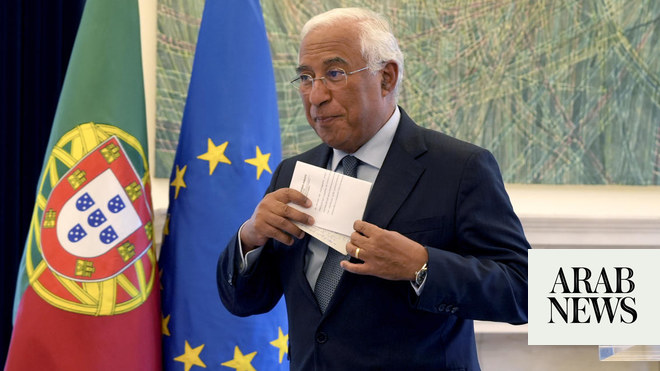
here’s a quip that both Boris Johnson and David Cameron have used – one that shows they are aware of the pitfalls of signing up to a specific religion in secular Britain while also wanting to keep co-religionists on side. Both have said that their Christian faith is a bit like the signal for Magic FM in the Chilterns: it comes and goes. But while Cameron the Christian is a typical nominal Anglican – church is for hatching, matching and dispatching, Christmas and Remembrance Sunday – Johnson’s involvement with religion has been far more topsy-turvy and dramatic. Who would have thought, when he became prime minister in 2019, that he would stop the balancing act and instead become a standard bearer for Roman Catholicism as the first occupant of No 10 to practise the religion?
Johnson’s religious life has been as chequered as his political career. Baptised as a baby into the Roman Catholic faith of his mother, Charlotte Johnson Wahl, he veered off at Eton into Anglicanism and was confirmed into the Church of England. Little is known of Johnson’s faith in the years that followed, apart from that Chilterns gag: he was busy editing the Spectator, becoming an MP, performing tripwire stunts as mayor of London, and developing a reputation for a rackety private life. But now the radio signal seems to be coming through loud and clear, although it’s been retuned to the old ways – a sort of religious equivalent of rediscovering the Home Service. He’s back in the Catholic fold.
There was notable surprise when Boris and his fiancee decided to have their baby baptised Catholic last September, but it was nothing compared with the headlines regarding his marriage at Westminster Cathedral. Outrage from divorced Catholics who have been refused a remarriage in the church was matched by Anglican anger that a previous church wedding was effectively ignored, allowing him to get married in the mother church of English Catholicism. For the record, the Catholic church makes clear distinctions between Catholics who marry in the Catholic church – a sacrament that therefore requires an annulment if the person wants a second church wedding after a civil divorce – and Catholics like Boris who marry elsewhere first time round – not a sacrament and not valid, even if civilly legal. As for Anglicans, their marriages in their churches are deemed valid.
But the issue that really merits attention is the significance of having a Catholic prime minister. In many ways, what is particularly noticeable is the lack of fuss about it. Once, given that the Church of England is the established religion of the country and that it was created following the break with Rome under Henry VIII, a Catholic prime minister would have been unthinkable. Even as recently as 2007, Tony Blair delayed his conversion to Rome until he had left office due to concerns that it would play badly in Northern Ireland.
Then there is the issue of the prime minister’s role in the Church of England. Under the Catholic Relief Act of 1829, “no person professing the Catholic religion” is allowed to advise the monarch on the appointment of Anglican bishops. Doing so would render Johnson guilty of a “high misdemeanour” and he would be banished from office. The likely solution is that the Lord Chancellor, Robert Buckland, will deal with the matter.
For Catholics themselves, whatever they may think of Johnson’s denominational somersaults, having a Catholic prime minister is a watershed moment. However much others have achieved in high office in recent years – running the BBC, becoming civil service permanent secretaries, heading Oxford colleges – nothing compares to running the country. We really have come in from the cold.
But will Johnson’s faith impact on his politics? Going by the government’s implacable approach to cuts to the aid budget, it would seem not. Many Catholics are passionate supporters of the church’s aid agency, CAFOD, and the aid cut is anathema to them. Their devotion to the body of theology called Catholic social teaching – Catholic Joe Biden is apparently a great fan – means that they are strong advocates of solidarity with the poor and most vulnerable in society. They will be keenly monitoring Johnson’s levelling-up plans. Then there’s climate change, an issue close to the heart of Pope Francis. There is plenty of talk in Rome that he may well attend Cop26 in Glasgow – a major photo opportunity for a Catholic PM.
It’s not a photocall likely to impress Scottish Catholics. Once a bloc vote that Labour could rely on, the Catholic constituency switched sides to the SNP in recent decades after Alex Salmond assiduously cultivated the country’s Catholic bishops. The SNP learned from that success and, more recently, has made inroads among Muslim voters too – clear evidence that religion can still play its part in UK politics.
Labour also used to be the natural party of Catholics in England and Wales, at a time when they were mostly working-class migrants with a smattering of posh converts and recusants. Now, thanks to Catholic schools, many of them have joined the middle class. But that aspiration is not necessarily enough to persuade them to vote for fellow believer Johnson, unless he can convince them he really does share their solidarity with those out of work and out of pocket after the pandemic.











